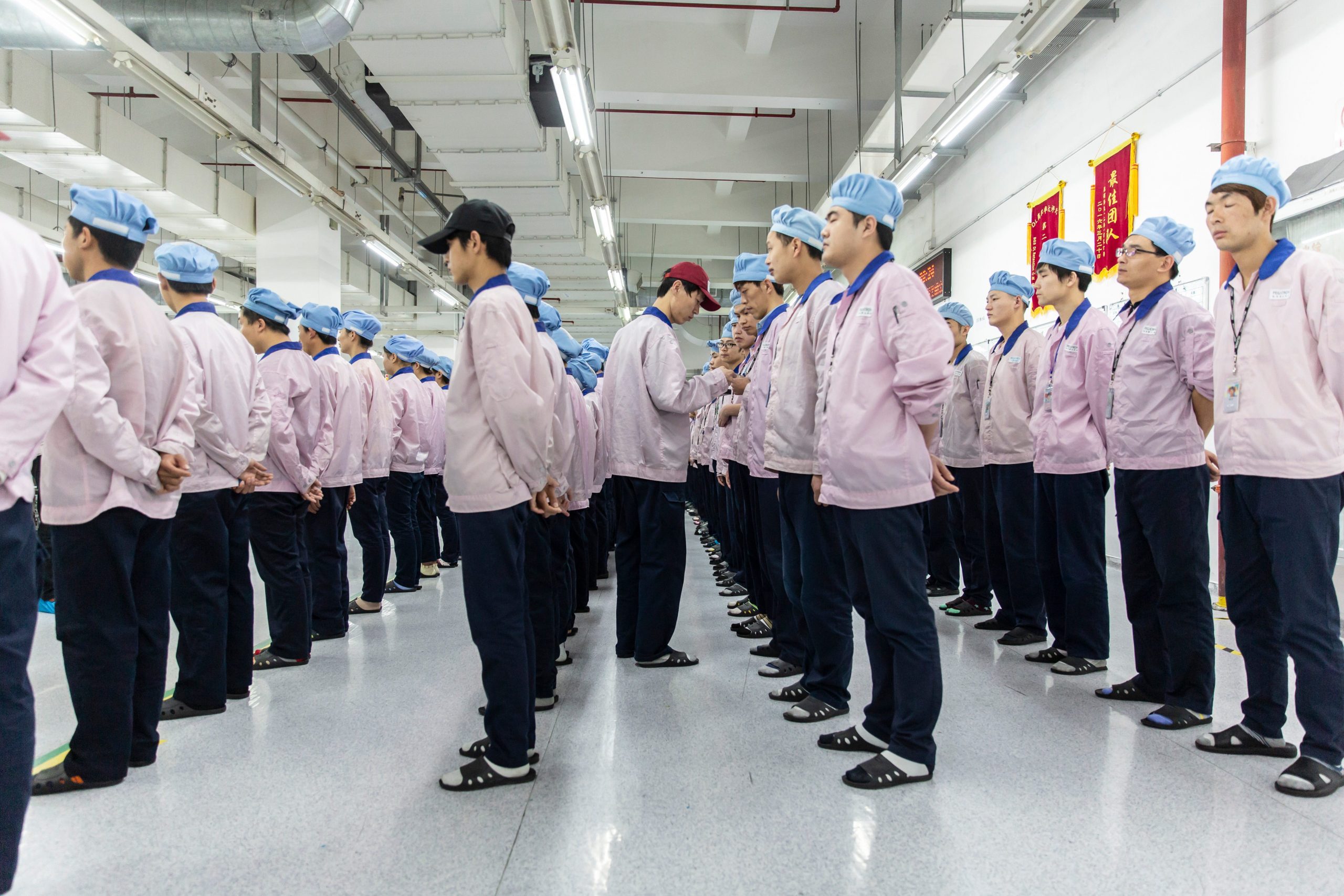
Qilai Shen/In Pictures via Getty Images
- Apple disregarded suppliers in China breaching the labor law which caps the proportion of temporary workers at 10%, according to ex-employees and internal company presentations, per The Information.
- Former staff members told the website Apple was concerned the labor law would heighten costs, delay product launches, and drain resources.
- Apple largest manufacturers, Foxconn, Quanta Computer and Pegatron, faced difficulties obeying labor restrictions between 2013 and 2018 because of Apple’s strategy for managing its supply chain.
- “We are making it difficult for our suppliers to comply with this law as 10% dispatch is simply not enough to cope with the spikes in labor demand we require during our ramps,” an internal Apple presentation said in 2015.
- Visit Business Insider’s homepage for more stories.
Apple was fully aware that from 2014 its suppliers were violating Chinese labor laws, but did nothing because it didn’t want to put a dent in its product launches or increase costs, according to a report by The Information on Wednesday.
Four former Apple employees said the tech giant has ignored suppliers violating Chinese labor laws since 2014. It has done so because it was concerned about delays in product launches and increased costs, The Information said.
Three of the former staff members worked in Apple’s supply responsibility team, which monitors violations and enforces penalties. The fourth ex-employee was a senior manager who was familiar with its operations in China, the report said.
The employees, as well as internal company presentations, suggested the tech firm did little to stop its suppliers from breaching the labor law. They said Apple was concerned the rule would increase costs, delay launches of its new devices and drain resources.
China restricted the use of temporary or “dispatch” workers in 2013, and in 2014 introduced a new labor law called “Provisional Regulations on Labor Dispatch,” requiring that no more than 10% of a factory’s workforce are temporary workers.
Apple and its manufacturing partner Foxconn confirmed in 2019 they violated this rule in the biggest iPhone factory in the world, after a report from China Labor Watch found 50% of the factory's workforce was made up of temporary workers. But according to the Information's report, Apple had already been aware of this since 2014.
Foxconn, Quanta Computer and Pegatron, Apple's three largest manufacturers, found it difficult to comply with the law between 2013 and 2018 because of Apple's strategy for managing its supply chain, the ex-employees and internal presentations revealed.
According to both the ex-employees and documents reviewed by the Information, Apple was fully aware that its business model was making it nearly impossible for suppliers to stay on the right side of the law.
A part of this strategy includes a process called "ramp" which involves Apple's suppliers hiring lots more temporary workers in the months leading up to a product launch. As demand slows down after the launch, the suppliers will lay off up to two thirds of their workforce, the report said.
The size of suppliers' workforces are constantly changing on an annual basis and they worry that Apple could switch to another competitor to assemble the products instead, according to The Information.
Apple relies on companies such as Pegatron, and its bigger Taiwanese rival Foxconn, to assemble its products, such as the iPhone and the iPad.
In a statement referring to The Information's report, Apple said: "Workplace rights are human rights and our supplier code of conduct is the strongest in the industry, and it applies equally to everyone across our supply chain."
"Occasionally factories use temporary labor, and we monitor this closely to ensure compliance with our code. Where we find issues we work closely with the supplier on corrective action plans," the company said.
An Apple survey in 2014 showed that more than half of 362 Apple suppliers broke the Chinese labor law, and Apple gave the companies two years to reduce temporary workers in the factories, but the situation hardly improved, The Information reported.
In March 2015, 81 of 184 of Apple's top suppliers exceeded the 10% threshold, and this continued throughout 2016, 2017 and 2018, The Information said.
An internal Apple presentation in 2015 reviewed by The Information stated: "Our surprise and delight' business model requires a huge volume of labor for only a short period of time as we ramp products."
"We are making it difficult for our suppliers to comply with this law as 10% dispatch is simply not enough to cope with the spikes in labor demand we require during our ramps," it said.
Another internal presentation in 2016 said: "Many sites have made no progress in reducing exposure to dispatch despite reduction plans submitted in 2015."
In November 2020, Apple announced it had suspended business with its second-largest iPhone manufacturer Pegatron after discovering labor violations in a Chinese student-worker program.
Pegatron misclassified students, allowed them to work night shifts and overtime, and let them perform work "unrelated to their major" at its plant near Shanghai, an Apple spokesperson told Business Insider.
"Apple has placed Pegatron on probation and Pegatron will not receive any new business from Apple until they complete all of the corrective actions required," Apple said.
